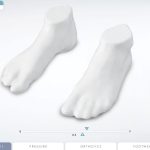San Francisco, CA, February 26, 2020 – A long string of bankruptcies and store closures – from Macy’s to Pier 1 – has illuminated the striking decline of traditional brick and mortar retailers in the United States. But one brand, sporting goods giant Decathlon, has defied the trendline and recently reported strong financial results globally and now has 1,600 stores in 69 countries around the world, including three new locations in the United States.
The French-based, family-owned business is the world’s largest sporting goods retailer, with over €12.4 billion in revenue, figures that represent a 9% growth in revenue over the past year.
Starting with a single laboratory store on San Francisco’s Market Street in late 2017, Decathlon has since opened a super-store in Emeryville in the spring of 2019 and another large-scale store in San Francisco in late 2019. The brand now operated roughly 100,000 square feet in the San Francisco Bay Area, a base it strategically chose to launch its U.S operations. Critically, Decathlon USA has also invested in an omni-channel approach, even as it continues plans to expand brick and mortar storefronts, and reports that online revenue has been a key distinction in U.S. growth.
“We believe in retail storefronts because they foster community engagement,” said Decathlon USA CEO Michel D’Humières. “We believe in the transformative power of play, and want to be in the communities we serve. Despite global headwinds in retailing and an adverse environment especially here in the United States, we’re finding that our deep connection to communities and dedication to good corporate stewardship are resonant.”
Reversing the global trend of retail decline has been informed by many factors, starting with Decathlon’s passionate dedication to making sports accessible to all by keeping prices for its goods affordable. It does so in large part by designing, manufacturing and selling only its own store brands, more than 100 of them, in categories ranging from cycling and golf to hiking, camping and water sports.
Beyond its dedication to accessibility, Decathlon has also invested heavily in corporate responsibility. The brand joined RE100, a global initiative by The Climate Group that unites 144 large, global businesses committed to using renewable electricity to accelerate the shift to a low carbon economy. Decathlon has committed to sourcing 100% of its electricity from renewable sources by 2026 through the production and procurement of renewable energy. The company also released plans aimed at making 100% of the products it manufactures to conform to an Eco Design process by 2026.
Leveraging Technology to Improve In-Store Experience
Decathlon is also leveraging technology solutions to improve in-store experience and better serve the brand’s customers. For example, Decathlon has partnered with Mulesoft for innovative API roll out and has the support of a fleet of robots, by Simbe Robotics, to handle store inventory, allowing Decathlon teammates to spend more time with customers and less time counting stock.
With its unique mobile checkout solution in partnership with NewStore, Decathlon recently won an award for “Best Omnichannel Solution” from EHI Retail Institute as part of the retail technology awards (reta) Europe. This tech-forward application allows any Decathlon teammate to check out customers anywhere in the store and seamlessly blends the online and in-store shopping experience.
“We want our customers to have the best experience possible in our stores and online, and these solutions help them spend more time interacting with our teammates and our products and less time standing in long checkout lines and dealing with clunky POS systems,” said Decathlon USA CIO/CTO Tony Leon.
Decathlon doesn’t break out financial data by country, but Dhumieres reports sales in the U.S. are up 352%, bolstered by the introduction of two new stores and online sales, and sustained revenue growth forecasted in 2020.










